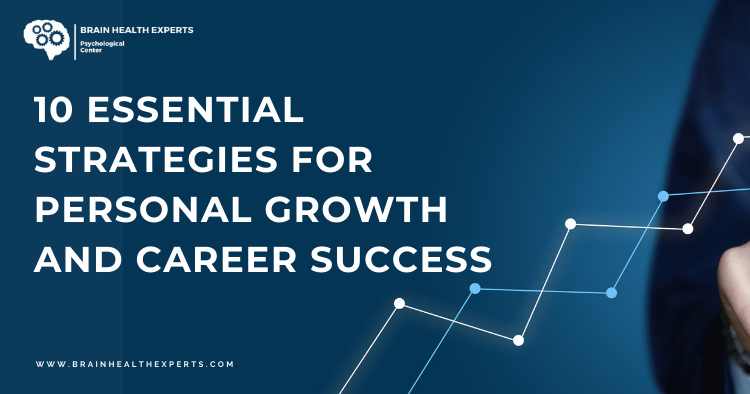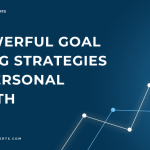Table of Contents
- Embrace Lifelong Learning
- Set Clear Goals
- Seek Feedback
- Network Effectively
- Develop a Growth Mindset
- Manage Your Time Wisely
- Cultivate Emotional Intelligence
- Take Calculated Risks
- Utilize Mentorship
- Prioritize Self-Care
Embrace Lifelong Learning
In our fast-paced world, the only constant is change. Embracing lifelong learning is crucial for personal growth and career success. This means actively seeking out new knowledge, skills, and experiences throughout your life. Consider enrolling in online courses, attending workshops or seminars, and reading industry-relevant books. Websites like Coursera and edX offer excellent resources for continued education.
Benefits of Lifelong Learning:
- Keeps Skills Relevant: In a rapidly evolving job market, continuous learning ensures your skills remain in demand.
- Boosts Confidence: Gaining new skills can increase your self-esteem, making you feel more competent in your career.
- Expands Opportunities: Learning new things opens doors to new roles and industries.
Also look for techniques to enhance your mindset, as discussed in 10 Powerful Techniques to Cultivate Positive Mindset.
Set Clear Goals
Setting clear, achievable goals is a cornerstone of personal growth and career development. Goals provide direction and motivation, helping you stay focused on what you want to achieve.
SMART Goals Framework
To set effective goals, consider using the SMART criteria:
- Specific: Clearly define what you want to achieve.
- Measurable: Establish criteria to measure your progress.
- Achievable: Ensure that your goals are realistic and attainable.
- Relevant: Align your goals with your overall career aspirations.
- Time-bound: Set a deadline for your goals to encourage timely action.
Example of a SMART Goal: Instead of saying, “I want to get a promotion,” you could say, “I want to become a team leader within the next year by completing two management training programs and mentoring two junior team members.”
Seek Feedback
Feedback is a powerful tool for personal and professional development. Regularly seeking constructive feedback can illuminate your strengths and areas for improvement.
How to Seek Feedback Effectively:
- Ask Open-Ended Questions: Instead of yes/no questions, ask for specific examples and suggestions.
- Be Receptive: Approach feedback with an open mind; don’t get defensive.
- Act on It: Demonstrating that you value feedback by implementing suggestions can enhance your relationships with colleagues and supervisors.
FAQs:
- Why is feedback important? It helps you identify blind spots and improve your performance.
- How often should I seek feedback? Regularly, ideally after completing significant projects or tasks.
Network Effectively
Networking is not just about collecting contacts; it’s about building meaningful relationships. Effective networking can lead to new job opportunities, collaborations, and valuable advice.
Tips for Networking:
- Attend Industry Events: Conferences, webinars, and meetups are excellent opportunities to meet like-minded professionals.
- Utilize Social Media: Platforms like LinkedIn can help you connect with industry leaders and peers.
- Follow Up: After meeting someone, send a thank-you email or connect on social media to maintain the relationship.
Resources:
For more on networking strategies, check out Harvard Business Review’s Networking Tips.
Develop a Growth Mindset
A growth mindset, described by psychologist Carol Dweck, is the belief that your abilities can be developed through dedication and hard work. Cultivating this mindset can significantly impact your personal growth and career trajectory.
How to Foster a Growth Mindset:
- Embrace Challenges: View challenges as opportunities to learn rather than obstacles.
- Learn from Criticism: Instead of seeing criticism as a personal attack, use it as a springboard for improvement.
- Celebrate Others’ Successes: Find inspiration in others’ achievements instead of feeling envious.
You can also explore how positive thinking contributes to personal growth in 10 Ways Positive Thinking Fuels Personal Growth Journey.
Manage Your Time Wisely
Time management is essential for achieving personal and professional goals. Effective time management allows you to prioritize tasks, reduce stress, and enhance productivity.
Time Management Techniques:
- The Eisenhower Matrix: Divide tasks into four categories based on urgency and importance to prioritize effectively.
- Pomodoro Technique: Work in focused bursts of 25 minutes followed by short breaks to maintain productivity.
- Set Deadlines: Even for non-urgent tasks, deadlines can help you stay on track.
| Technique | Description | Benefits |
|---|---|---|
| Eisenhower Matrix | Prioritize tasks based on urgency/importance | Increases focus |
| Pomodoro Technique | Work in 25-minute bursts with breaks | Reduces burnout |
| Set Deadlines | Create urgency for tasks | Enhances accountability |
Cultivate Emotional Intelligence
Emotional intelligence (EI) is the ability to understand and manage your emotions and the emotions of others. High emotional intelligence can lead to better communication, collaboration, and conflict resolution.
How to Improve Emotional Intelligence:
- Practice Self-Awareness: Regularly reflect on your emotions and reactions.
- Develop Empathy: Try to understand situations from others’ perspectives.
- Improve Communication Skills: Practice active listening and articulate your thoughts clearly.
For further insights, check out Understanding Emotional Intelligence: Key Insights & Benefits.
Take Calculated Risks
Taking risks can be daunting, but it’s often necessary for personal growth and career advancement. Calculated risks involve weighing potential outcomes and making informed decisions.
Steps for Taking Calculated Risks:
- Analyze the Situation: Gather information, evaluate options, and consider potential consequences.
- Start Small: Begin with small risks to build confidence and understand the process.
- Learn from Failures: View setbacks as learning experiences that can guide future decisions.
FAQs:
- What if I fail? Failure is a part of growth; analyze what went wrong and use it to inform your next steps.
- How can I become more comfortable with risk? Start by stepping out of your comfort zone in small ways.
Utilize Mentorship
Mentorship can significantly enhance your personal and professional growth. A mentor provides guidance, support, and valuable insights based on their experiences.
Finding a Mentor:
- Identify Your Needs: Determine what areas you want to develop.
- Look for Experienced Professionals: Reach out to individuals in your network or industry who have the experience you seek.
- Establish Clear Expectations: Communicate what you hope to gain from the mentorship relationship.
Resources:
For tips on finding a mentor, visit Forbes’ Guide on Mentorship.
Prioritize Self-Care
Finally, personal growth and career success are closely tied to your overall well-being. Prioritizing self-care helps you manage stress, maintain focus, and sustain productivity.
Self-Care Practices:
- Regular Exercise: Physical activity boosts mood and energy levels.
- Mindfulness and Meditation: These practices can reduce stress and improve focus.
- Work-Life Balance: Set boundaries between work and personal time to recharge.
You can learn more about how to incorporate mindfulness into your life through 10 Essential Mindfulness Practices for Beginners.
By focusing on these ten essential strategies, you can foster personal growth and set yourself on a path to career success. Remember, the journey of self-improvement is ongoing, and each step you take brings you closer to your goals. Happy growing!





